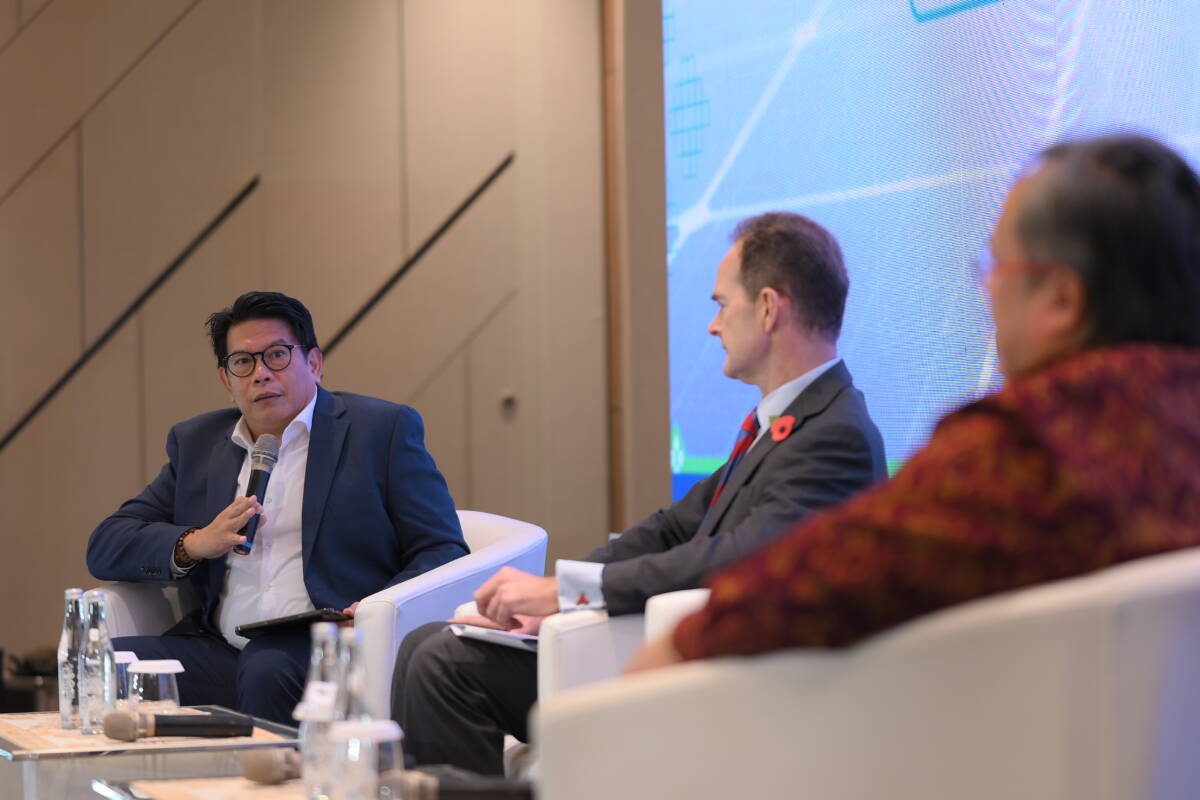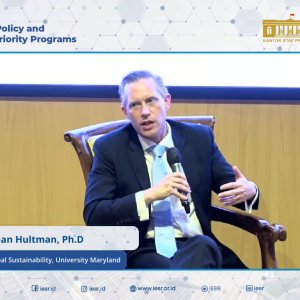Jakarta, November 21, 2024 – President Prabowo Subianto told the G20 Summit in Rio de Janeiro, Brazil, on Tuesday (19/11/2024) that Indonesia is optimistic about achieving a net zero carbon target before 2050 to reduce global temperature. He revealed that with abundant resources, Indonesia plans to stop the operation of coal-fired power plants (CFPP) in the next 15 years. The same was expressed at the APEC CEO Summit Peru 2024 forum. Prabowo emphasized that Indonesia will achieve green energy self-sufficiency in the next few years, and 100 per cent of the electricity will be supplied from renewable energy within ten years.
The Institute for Essential Services Reform (IESR) considers the statement to stop the operation of coal-fired power plants in 2040 and achieve 100 percent renewable energy within the same period as a positive signal of President Prabowo’s ambition to accelerate the energy transition in Indonesia and support the limitation of earth warming by 1.5 degrees Celsius according to the Paris Agreement.
The president’s ambition to realize the green energy self-sufficiency plan needs to be continued with leadership and firm orders to relevant ministers and PLN to develop targets, detailed road maps, measurable plans supported by aligned policies and regulations to achieve these targets.
Executive Director of IESR, Fabby Tumiwa, stated that ending the operation of coal-fired power plants is crucial to achieving the fair energy transition target. Based on IESR’s analysis, to reach net-zero emissions by 2050, Indonesia needs to reduce capacity and electricity generation from coal-fired power plants by 11 percent in 2030, more than 90 percent in 2040, and stop coal-fired power plant operations entirely in 2045. This would also enable renewable energy penetration to reach 40 percent of the primary energy mix in the power sector by 2030. Citing an IESR study titled Beyond 443 GW, Indonesia has a total technical potential of 7,879.43 GW of solar, wind, hydro and biomass energy and 7,308.8 GWh for PHES. With this potential, Indonesia can rely on renewable energy resources to transition quickly and cheaply.
“The Ministry of Energy and Mineral Resources, the Ministry of Finance and the Ministry of BUMN need to immediately finalize the road map for the termination of PLTU operations as mandated by Presidential Regulation No. 112/2022 with a period of 2040. Thus, it can determine the exact stages of termination, funding and financing schemes, development of renewable energy capacity and energy storage, and prepare plans to address social and economic impacts for affected workers. We suggest that an electricity decarbonization task force be formed immediately, with representatives from across ministries and PLN, led by a firm figure who understands the issues and reports directly to the President,” Fabby said.
Fabby also reminded that the end of coal-fired power plants also requires massive investment to build renewable energy plants and energy storage to replace electricity generated by power plants, meet the growth in electricity demand and maintain reliability. Investment of around USD 1.2 trillion is needed until 2050 to meet energy needs with renewable resources, especially solar energy, and the construction of energy storage and transmission networks. In addition, the cost of early retirement of power plants, especially IPPs with contracts with PLN until 2056, will be required. The government can try a blended finance scheme and carbon credits from projects that support the energy transition (transition carbon credits) to finance the early retirement of CFPP operations.
Deon Arinaldo, Energy Transformation System Program Manager, IESR, said that IESR’s study titled Health Benefits of Just Energy Transition and Coal Phase-out in Indonesia shows that the early retirement of all coal-fired power plants in the PLN network by 2040 can avoid 182,000 premature deaths due to air pollution, and reduce the burden of health costs by up to USD 130 billion (around Rp 1,900 trillion), There are 4.5 GW of old and inefficient power plants that can be retired immediately so that they can reduce emissions by 28.8 million tons of CO2 per year while improving air quality, water and public health.
“Although the phase-out provides significant economic and social benefits, the costs of early retirement of the power plant, mainly asset retirement costs, reduced government revenues, and worker transition costs, are estimated at USD 4.6 billion until 2030. The costs increase in line with the acceleration of the phase-out until they reach USD 27.5 billion in the 2040-2050 time frame. Therefore, international funding support is critical to ensure this fair and sustainable transition,” said Deon.
On the other hand, Arief Rosadi, Climate and Energy Diplomacy Program Manager, IESR, mentioned the president’s statement that achieving NZE before 2050 needs to be translated into more ambitious climate and energy policies. Arief said that Indonesia’s climate actions and policies are currently categorized as critically insufficient based on the Climate Action Tracker (CAT) evaluation. This means that efforts to reduce global warming by the government are far from sufficient. There is a large gap between current policies and the level of emissions estimated to be fair and equitable to limit warming to 1.5 degrees Celsius. To achieve climate targets aligned with the Paris Agreement, Indonesia needs to integrate development priorities with a fair share of emissions.
“Governments have a huge responsibility to show stronger international leadership, by making bolder commitments taking into account the principles of equity, historical responsibility in addition to capacity factors. Based on CAT’s calculations, to be in line with the 1.5 degrees Celsius limitation of increase, conditional NDCs should be set at 28 percent and 51 percent below 2019 levels, respectively, by 2030 and even more ambitiously by 2035. International collaboration and assistance is a very important aspect for Indonesia. In addition, Indonesia must accelerate the adoption of renewable energy, accompanied by explicit and credible commitments to fully phase out coal and halt deforestation,” Arief said.


